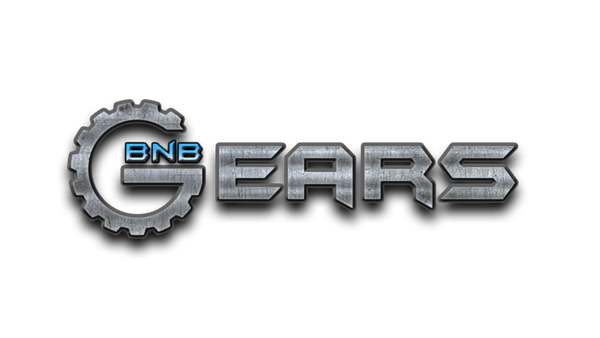
How Towing Affects Your Transmission
Share
How Towing Affects Your Transmission: What You Need to Know
Towing a trailer, boat, or camper opens up exciting possibilities for adventure and work. But before you hitch up and hit the road, understanding how towing affects your vehicle's transmission could save you thousands in repair costs. Your transmission works harder when pulling additional weight, and without proper precautions, this increased demand can lead to serious damage.
Whether you're planning your first towing experience or you're a seasoned hauler, knowing how to protect your transmission is essential for safe, reliable operation.
Understanding the Transmission's Role in Towing
Your transmission serves as the critical link between your engine and wheels, converting engine power into the right amount of force and speed for your driving conditions. When towing, this system faces dramatically increased demands that can push it beyond normal operating limits.
During regular driving, your transmission operates within designed parameters. Add a heavy load behind your vehicle, and suddenly everything changes. The transmission must work harder to get moving from a stop, maintain highway speeds, and handle inclines that would normally pose no challenge.
This increased workload generates more heat, creates additional friction between internal components, and forces your transmission to shift more frequently between gears. Over time, these factors combine to accelerate wear and potentially cause costly failures.
The Mechanics of Transmission Strain During Towing
Heat: The Silent Transmission Killer
Towing and transmission damage often start with one primary culprit: excessive heat. Your transmission generates heat through normal operation, but towing can cause temperatures to soar well beyond safe levels. When pulling heavy loads, especially on hills or in stop-and-go traffic, transmission fluid temperatures can quickly exceed 200°F.
At elevated temperatures, transmission fluid breaks down rapidly, losing its ability to lubricate moving parts and regulate heat. This creates a dangerous cycle where poor lubrication generates even more heat, accelerating component wear and increasing the risk of complete transmission failure.
Increased Wear and Tear on Critical Components
The additional stress of towing affects every major transmission component. Clutch bands work harder to maintain proper gear engagement, torque converters face increased pressure, and internal pumps must circulate fluid more aggressively to manage heat and pressure.
Gear changes become more frequent and forceful when towing, particularly during acceleration and hill climbing. This constant shifting pattern puts extra stress on valve bodies, solenoids, and hydraulic systems that control gear selection.
Fluid Degradation and System Contamination
High operating temperatures accelerate transmission fluid breakdown, causing it to lose viscosity and develop harmful deposits. Degraded fluid can't properly lubricate components or transfer heat away from critical areas, creating conditions ripe for internal damage.
Overheated fluid also generates varnish and sludge that can clog filters, block fluid passages, and interfere with precise hydraulic control needed for smooth operation.
Safe Towing Practices to Protect Your Transmission
Know Your Vehicle's Towing Capacity
Every vehicle has specific towing limits established by the manufacturer. Exceeding these limits dramatically increases your risk of transmission problems. Check your owner's manual for both maximum towing weight and tongue weight specifications.
Remember that towing capacity includes not just the trailer weight, but also everything loaded inside it. A seemingly light trailer can quickly approach weight limits once fully loaded with gear, supplies, or cargo.
Use Proper Towing Equipment
Invest in a quality transmission cooler designed for your vehicle and towing needs. Aftermarket coolers can reduce operating temperatures by 50°F or more, providing crucial protection during demanding towing conditions.
Ensure your hitch system properly distributes tongue weight and maintains level towing attitude. Improper weight distribution can affect vehicle handling and force your transmission to work harder to maintain control.
Monitor Transmission Temperature
Install a transmission temperature gauge to keep track of fluid temperatures during towing. This simple addition allows you to spot potential problems before they cause damage and adjust your driving accordingly.
If temperatures begin climbing above normal operating range, reduce speed, find a safe place to stop, and allow the transmission to cool before continuing.
Practice Smart Driving Techniques
Gentle acceleration helps your transmission manage the additional load without excessive stress. Avoid jackrabbit starts and aggressive throttle inputs that force rapid gear changes and generate unnecessary heat.
Use lower gears when climbing hills or descending steep grades. Manual gear selection prevents constant upshifting and downshifting that can overheat your transmission on challenging terrain.
Plan routes that avoid congested areas where possible. Stop-and-go traffic while towing creates ideal conditions for transmission overheating.
Transmission Maintenance for Towing
Regular maintenance becomes even more critical when towing regularly. Change transmission fluid more frequently than standard service intervals suggest—typically every 30,000 miles instead of 60,000 miles for vehicles used for towing.
Use high-quality synthetic transmission fluid designed for high-temperature operation. Synthetic fluids maintain their properties longer under extreme conditions and provide better protection against breakdown.
Have your transmission serviced by experienced professionals who understand the unique demands of towing. They can identify potential issues before they become expensive problems and ensure your system operates at peak efficiency.
Warning Signs of Transmission Trouble After Towing
Watch for subtle changes in transmission behavior after towing trips. Delayed engagement when shifting from park to drive, unusual noises during gear changes, or slipping sensations while accelerating can indicate developing problems.
Check transmission fluid regularly for color changes, burning odors, or metal particles that suggest internal wear. Dark, burnt-smelling fluid should be changed immediately, and metallic particles warrant professional inspection.
Pay attention to how your vehicle responds on hills and during acceleration. Reduced power, hesitation, or inability to maintain highway speeds may indicate transmission issues requiring immediate attention.
Protecting Your Investment Through Proper Towing
Understanding how towing affects your transmission empowers you to take preventive steps that protect your vehicle investment. With proper equipment, smart driving practices, and regular maintenance, you can enjoy years of reliable towing without transmission worries.
At Gears Transmission, our ASE-certified technicians bring over 20 years of experience to transmission service and repair. We understand the unique challenges towing places on your vehicle and provide expert solutions to keep you moving safely. Whether you need routine maintenance, transmission repairs, or advice on towing preparation, our team in Ringgold, GA is ready to help. Stop by today and let us ensure your transmission is ready for whatever adventures lie ahead.
